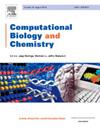FoodABSANet: Developing an adaptive graph convolutional neural network for aspect-based sentiment analysis of food reviews with a weighted polarity score
IF 3.1
4区 生物学
Q2 BIOLOGY
引用次数: 0
Abstract
-Aspect-Based Sentiment Analysis (ABSA) is considered a unique variant, which intends to identify the opinions regarding delicate topics. However, it is a neglected topic of study, ABSA attempts to find out the sentiment polarity on particular characteristics within statements, enabling more precise mining of consumers' emotional polarities regarding various aspects. The conversion of the conventional rating-aided recommendation approach into an effective aspect-aided procedure is made easier by this evaluation. The ABSA in hotel ratings serves as an essential. ABSA analyses an extensive choice of comments that expand a far trouble-free good, poor opinions that delve into particular factors addressed in the analysis. However, ABSA struggles to maintain numerous aspects that influence one another. In the past few years, deep learning techniques have been employed to analyze text emotion with outstanding outcomes.
FoodABSANet:开发一种自适应图形卷积神经网络,用于加权极性评分的基于方面的食物评论情感分析
-基于方面的情感分析(ABSA)被认为是一种独特的变体,旨在识别有关敏感话题的意见。然而,这是一个被忽视的研究课题,ABSA试图找出语句中特定特征的情感极性,从而更精确地挖掘消费者在各个方面的情感极性。通过这种评价,可以更容易地将传统的评级辅助推荐方法转化为有效的方面辅助程序。ABSA在酒店评级中起着至关重要的作用。ABSA分析了广泛的评论选择,这些评论扩展了一个远无麻烦的好,差的意见,深入到分析中解决的特定因素。然而,ABSA努力维持相互影响的许多方面。在过去的几年里,深度学习技术已经被用于分析文本情感,并取得了显著的成果。
本文章由计算机程序翻译,如有差异,请以英文原文为准。
求助全文
约1分钟内获得全文
求助全文
来源期刊

Computational Biology and Chemistry
生物-计算机:跨学科应用
CiteScore
6.10
自引率
3.20%
发文量
142
审稿时长
24 days
期刊介绍:
Computational Biology and Chemistry publishes original research papers and review articles in all areas of computational life sciences. High quality research contributions with a major computational component in the areas of nucleic acid and protein sequence research, molecular evolution, molecular genetics (functional genomics and proteomics), theory and practice of either biology-specific or chemical-biology-specific modeling, and structural biology of nucleic acids and proteins are particularly welcome. Exceptionally high quality research work in bioinformatics, systems biology, ecology, computational pharmacology, metabolism, biomedical engineering, epidemiology, and statistical genetics will also be considered.
Given their inherent uncertainty, protein modeling and molecular docking studies should be thoroughly validated. In the absence of experimental results for validation, the use of molecular dynamics simulations along with detailed free energy calculations, for example, should be used as complementary techniques to support the major conclusions. Submissions of premature modeling exercises without additional biological insights will not be considered.
Review articles will generally be commissioned by the editors and should not be submitted to the journal without explicit invitation. However prospective authors are welcome to send a brief (one to three pages) synopsis, which will be evaluated by the editors.
 求助内容:
求助内容: 应助结果提醒方式:
应助结果提醒方式:


